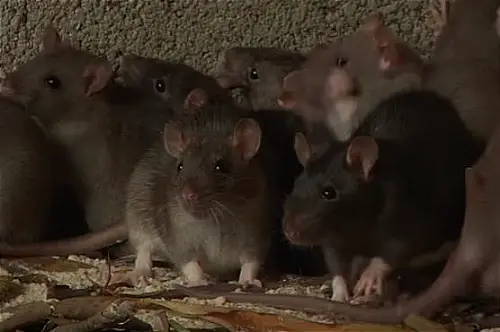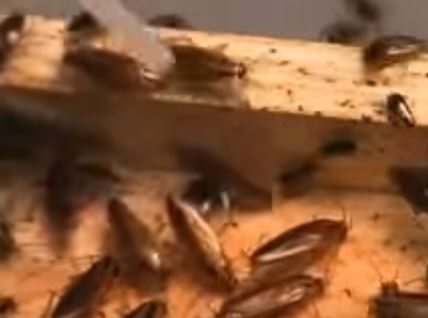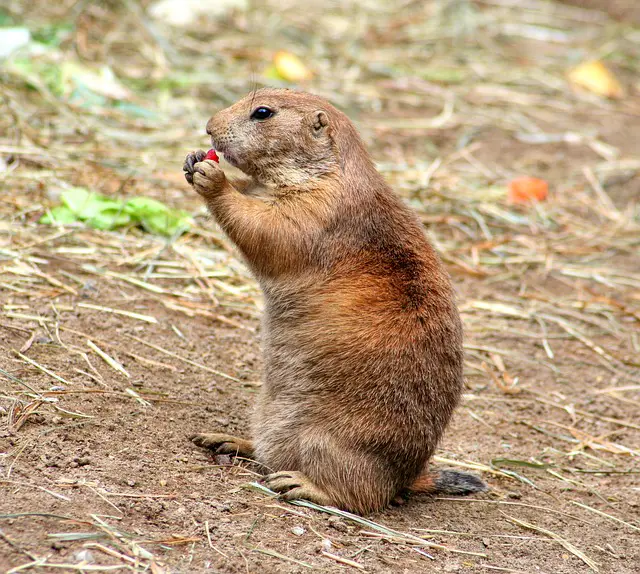One’s garden is at once a sanctuary and a source of great pride for the work that you have put into it. Although the major factors in a garden’s health and beauty are irrigation and fertilizer, another factor should be considered whenever you think about gardening. That, of course, is the presence of pests.
Pests in a garden can take several forms, from the insects we are familiar with, such as rodents, and invasive plants like weeds. There is nearly no end to the list of things that can damage or destroy your garden and reduce the level of pleasure you can take in it.
All pests have harmful effects on our health, either directly or indirectly. This is why it is essential that we completely understand the dangers pests may have. The most common garden pests – ants, cockroaches, and rodents, all carry dangerous health risks, which we are unfortunately exposed to.
Here is a list of some of the more common pests that we normally found in our garden and what you can do to ameliorate the impact of each one.
Weeds
This is likely to be the biggest and most tenacious problem you face when tending to a garden. The category of weeds in and of itself encompasses a huge range of plants that are undesirable or downright harmful to the beneficial plants you want to cultivate.
Weeds can come from anywhere and often steal vital nutrients from the soil your plants need to flourish. They are also well known for blocking out vital sunlight to more beneficial plants, meaning that your garden will never be as healthy and beautiful as it can be if you allow these plants to grow unchallenged.
To kill weeds, you will need an effective and proven herbicide. These come in two forms. The first is pre-emergent herbicides that kill the plants before they come out of the ground and regular topical herbicides that treat those weeds that have already blossomed.

Insects
Although weeds are a huge problem in gardens, the threat of insects leads to even more plant damage per year. The most common pests that can and will damage your garden if they’re allowed to are insects such as ants, crickets, and aphids, all of which bring their destructive problems to the peace and serenity of your garden.
For instance, ants not only can eat through the leaves and stems of your plants, but they also tend to farm problem pests such as aphids, which are even more damaging to the garden over time.

Since ants are actually social insects, you must be certain that there are already hundreds or maybe thousands hiding when you find one in your home. It may seem that ants are small and harmless, but the fact is, they can contaminate food.
Because of the danger of ants easily contaminating food undetected, we need to eradicate ants from our homes. If you have a severe ant infestation problem in your home, hiring a professional to treat your home will be wise.
Often the best way to treat these sorts of pests is to use a natural or organic product first, such as diatomaceous earth, before moving on to the more powerful and potentially hazardous chemical pesticides. It is often enough to merely treat the problem with a more natural remedy before moving on to the big guns.
Rodents
Most people likely think of rodents such as mice and rats as a household pest more than a pest you might find in the garden. While they are more comfortable in one’s home, they are also quite capable of making themselves a nuisance in your garden.
This is most commonly seen when your fruits and vegetables are nearing harvest because the rodents will recognize this as an easily accessible food source. There is rarely anything to stand between them and your plants should they decide to feast on them.
There are a couple of things that you can do, though. The first is to think about placing rodent baits around the garden.
You will want to be careful, though, as many of these products can be harmful to pets and humans if they are accidentally exposed to them. Therefore you should always protect the bait with rat bait stations.
These products will keep the bait out of the hands of unwary children but still allow the rodents easy access to the poison. Using bait like this will keep your garden free of this nuisance and ensure that all your fruits and vegetables survive until they get to your dinner table.

These pests can enter any structure through any crack. The best way to determine if you have a rodent problem is by inspecting undisturbed areas along walls, under baseboards, and your backyard, where you may find their droppings.
Unfortunately, through these droppings and urine, people are infected with diseases such as the deadly Hantavirus. They can also contaminate kitchen surfaces, utensils, equipment, and food sources that contact their bodies. Rodents are very difficult to eradicate from a garden, so professionals are more suited to eliminate pests and protect your health.
Cockroaches

Cockroaches are disgusting and annoying pests, and they happen to carry bacteria on the bodies that can contaminate food surfaces, equipment, and food sources. Many children and older adults have severe sensitivities to cockroach allergens, leading to severe asthma – respiratory symptoms. The fatal allergens are spread in gardens through the droppings and saliva of cockroaches, including their decomposing bodies.
Mosquitoes

Mosquitoes are both a nuisance and a major threat to our health. They can inflict itchy red marks that cause severe allergic reactions, and they can also spread dangerous infections such as the West Nile Virus and Dengue.
In recent years, infections brought about by mosquitoes have been reported throughout the country, and many of these infections have been deadly. To control and prevent mosquitoes from breeding, families are always encouraged to remove standing or stagnant water around their gardens.
Gophers
Gophers cease being cute when they begin wreaking havoc in your landscape. Because of their extensive digging and reproduction, a gopher problem can quickly get out of hand to create untold damage in your gardens and lawn.

Colorado State University provides information and helpful advice for managing a gopher population in a yard. With a firm understanding of the animal’s behavior, how it reproduces, and the damage it can inflict on your landscape, you’ll see how important it is to keep them away. Although it requires time and effort, keeping gophers out of the yard will ensure that your plants and landscape areas remain healthy and vibrant.
Gopher Behavior
Gophers eat roots, grass, plants, shrubs, and trees in the landscape. Gophers use their front legs and teeth together to move dirt out of the way to create tunnels underground. As gophers create the tunnels, they deposit the extra dirt onto the grass above the soil level. Gophers are solitary animals, and they will live alone in one tunnel system.
Left unchecked, gophers can destroy a lawn, kill trees and create extensive damage in a garden. In the wild, gophers can benefit the soil because they help it and fertilize it with their waste.
Gopher Prevention
A gardener or landscaper has several options for keeping gophers out of the yard.
Underground Nets or Screens
Install an underground barrier around a planting area to keep gophers from digging tunnels under your plants. Both nets and screens can install into the ground to prevent gophers from having access to specific areas. Make sure to install the nets or screens at least 18 inches below the soil surface for the most effective barrier.
Raised Garden Beds
When you place plants in a raised garden bed or plant boxes, you prevent gophers from disturbing the roots of these plants. Gophers digging under the soil of a raised bed should not affect the plants.
Buffer Strip
Gophers do not like grain plants because they upset their digestive tracts with too little nutrients. Create a buffer strip around planting areas by planting grain in a 6-inch strip. When gophers detect the grain, it will repel them away from your plants. Another idea – create a buffer strip of plain gravel at least 6 inches wide. The lack of roots in the buffer strip may deter gophers from digging.
Natural Predators
Several different animals are natural predators of gophers. If you attract these animals to your landscape, they may help you by controlling the gopher population. Barn owls will nest near your landscape if you provide them with nesting boxes. Gopher snakes will readily feed on gophers to eliminate them. Besides, coyotes, cats, and dogs may also hunt gophers for you.
Scents
Gophers may have an aversion to some strong-smelling plants such as garlic and onions. Plant these plants as a barrier around your planting areas.
For the most effective gopher control, utilize a combination of these landscaping tactics. With tenacity and effort, you should be able to keep gophers out of the yard or at least reduce their numbers to control the amount of damage they inflict on your plants.
Fleas

If you think that fleas only pose a threat to your pet dog or cat, then you will be surprised to find that fleas will feed on the blood of any warm-blooded body. Fleas do bite humans, and they can inflict itchy marks with severe allergic reactions.
Since fleas feed on the blood of any warm-blooded animal, they will also feed on the blood of rodents if you have a rodent problem as well. It would help if you never tolerated fleas, so have your garden treated as well when you have your pet treated.
Our health and safety must always be a priority. If you suspect a pest problem in your garden, look out for the signs and consult with a professional. Never wait for the problem to get out of hand.
Also read:
